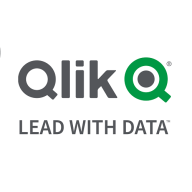

Matillion Data Productivity Cloud and Qlik Compose compete in the data management and integration category. Matillion seems to have the upper hand due to its user-friendly interface and strong versatility in ETL processes, whereas Qlik Compose is favored for quick data warehouse project delivery.
Features: Matillion Data Productivity Cloud offers built-in verification, scheduling, and integration capabilities with services like AWS Redshift and Snowflake, making it adept for agile data management. Its visual interface is highlighted as a major advantage for ease of use. Additionally, Matillion's versatility in ETL processes supports complex project requirements. On the other hand, Qlik Compose provides commendable data modeling and automation features, with real-time replication and data warehouse automation, despite limited broader data integration capabilities.
Room for Improvement: Users of Matillion desire more frequent API updates to manage the evolving services from providers like Google and Facebook. They also request better documentation and window management. For Qlik Compose, improvements are desired in scalability and ETL capabilities, including better data replication and monitoring features. Both products could enhance integration with additional data sources. Matillion's current EC2 limitations and Qlik's handling of complex SQL transformations are noted areas of concern.
Ease of Deployment and Customer Service: Matillion Data Productivity Cloud is primarily deployed on the Public Cloud, offering seamless setup and deployment with praised technical support. Qlik Compose offers varied deployment options, including On-premises and Public Cloud. Both products receive positive feedback for their technical support, but Qlik users report documentation and initial setup challenges. Matillion's cloud-native nature facilitates easier scaling compared to Qlik's diverse deployment scenarios.
Pricing and ROI: Matillion's pricing, based on machine size and AWS usage, is considered competitive, especially when purchased through AWS Marketplace. It provides a predictable cost structure with savings possible by managing instance uptime. Qlik Compose pricing is regarded as expensive and users seek a clearer structure, though both solutions achieve ROI within a year. Matillion is noted for its flexibility and efficiency in cloud environments, while Qlik's comprehensive data handling supports its higher cost for some users.


Matillion Data Productivity Cloud features an intuitive graphical interface, seamless AWS integration, and efficient data management. Its tools streamline complex tasks for SFDC, RDS, Marketo, Facebook, and Google AdWords.
Matillion Data Productivity Cloud provides fast transformations with built-in verification, easy scheduling, and sampling. With automatic scalability and diverse data source support, it simplifies complex data tasks. Users benefit from cloud data warehousing and integrating data into Snowflake while appreciating its ease of use by non-technical teams. Enhancements can focus on frequent API adjustments, improved documentation, faster performance with less latency, and better error handling.
What are the key features of Matillion Data Productivity Cloud?
What benefits and ROI should users seek in reviews?
In industries such as technology, finance, and healthcare, Matillion Data Productivity Cloud is implemented to streamline ETL processes, optimize data pipeline construction, and enhance data migration efforts. It supports efficient data loading and integration between cloud and on-premises databases, aiding industries in managing data-driven projects.
Qlik Sense is a powerful business intelligence tool that offers a range of features to help organizations make faster and more informed decisions. Its primary use cases include operational and financial dashboards, self-service reporting, and centralized access to cross-functional reports. The solution is praised for its mobile platform, ease of use, data-sharing capabilities, and extensibility.
Qlik Sense has helped organizations improve data literacy, reduce time consumed in complex reports, and provide widely available MI to senior stakeholders. It also enables self-service analytics, improves data quality and governance, enhances collaboration, and reduces costs.
We monitor all Cloud Data Integration reviews to prevent fraudulent reviews and keep review quality high. We do not post reviews by company employees or direct competitors. We validate each review for authenticity via cross-reference with LinkedIn, and personal follow-up with the reviewer when necessary.